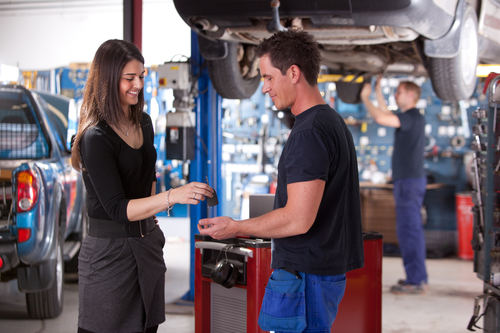For car owners throughout the country there certainly comes a time when repairs to vehicles have to be made and even though all vehicles may not require any immediate repairs it is still very important that all vehicles traveling on roads receive regular auto maintenance and repair to ensure they are working properly and in compliance with road standards.

Auto Maintenance Advice
Although drivers should make repairs and the maintenance of vehicles a priority people often wait for their car to malfunction before taking action. This approach has proven to be far more expensive and inconvenient so carrying out prompt repairs and preventative maintenance is usually the best option.
It is no secret that car repairs or maintenance can incur high bills and with the pressure created from the continuing economic crunch, drivers may be a bit hesitant to conduct repairs or maintenance to their vehicles.
Some people may see this as a hopeless situation because they cannot afford the necessary repairs or maintenance however there are a few tips that drivers can utilize to help them save as much money as possible and that may even make the whole process easier.
The first thing to do would be to locate a reputable garage and mechanic. Your mechanic should be trustworthy, reasonable and knows what they are doing. Nevertheless one can never estimate how much damage a car could sustain at any given time which would obviously make it difficult to estimate the costs of repairs.
Hire a professional to test your car’s air and oil filters, lighting and signaling systems , wiper blades, fluids and brakes. You should also frequently service the transmission system in an effort to maintain the vehicle’s critical components.
In addition to this drivers should be sure to check their car batteries, cables and connections to ensure that everything is as it should be. Inspect engine hoses for cracks, leaks or loose clamps and keep in mind when inspecting that hoses should not feel spongy or look brittle. These measures serve to prevent any disruption in the way the vehicle functions and eliminates any issues before they get out of control and cost you way more to be fixed.
Look for the best when looking for an auto repair shop. Here at All Around Auto Repair we have dedicated and highly trained staff. Visit our website and take a look at our reviews from past clients. Contact us for more information.

